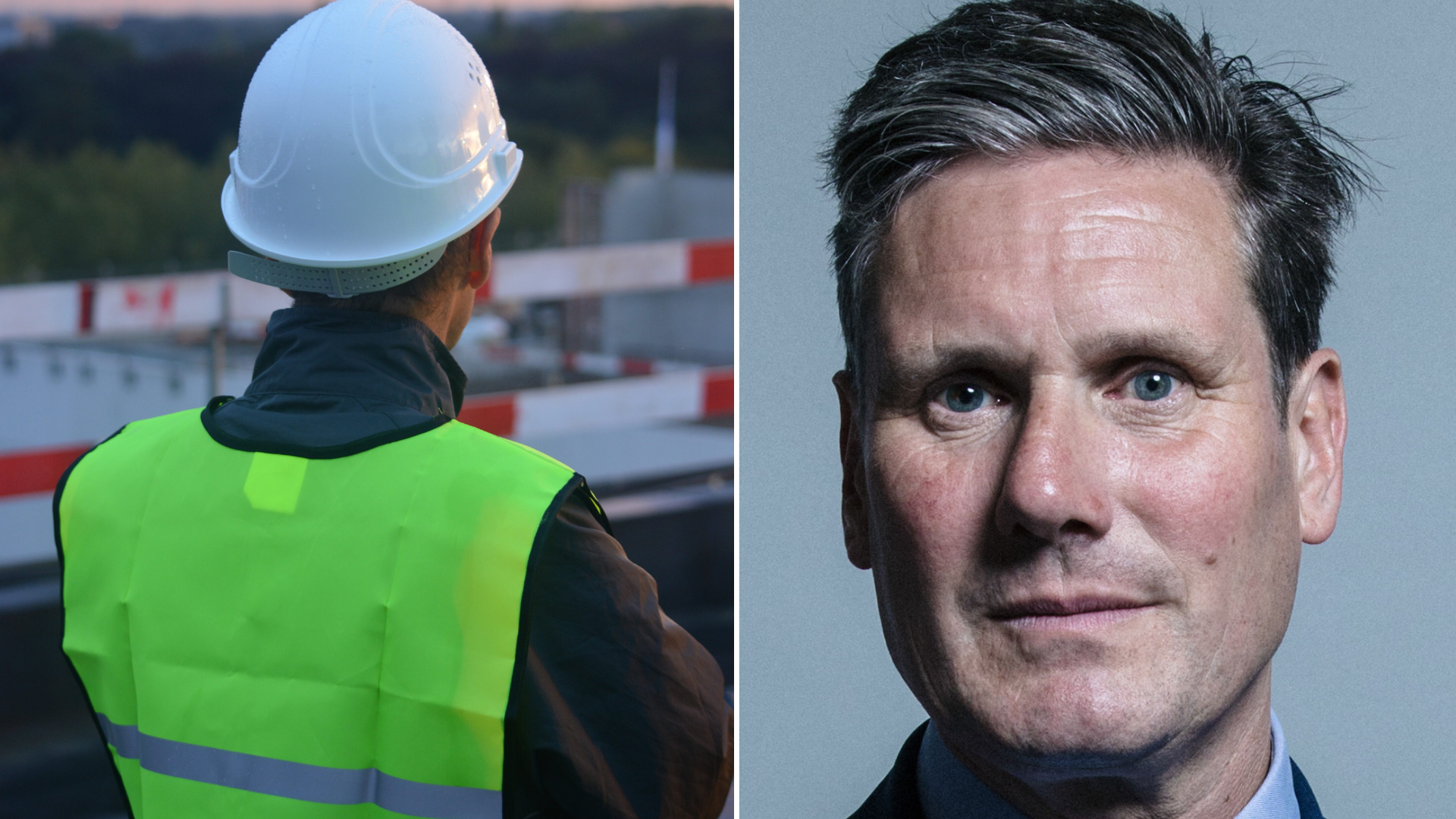MPs were told in February that green jobs would be crucial in “building back better” from the Covid-19 economic fallout and helping the UK reach its net-zero target by 2050. Public transport, renewable energy, nature restoration and flood defences are all areas which could create jobs, tackle the climate crisis and boost the economy, experts said.
The Office for National Statistics tracks the number of green jobs in the low carbon and renewable energy economy. The latest figures, from March 2021, showed an estimated 202,100 people worked full time in the UK’s so-called “green economy” – although this is a decline from 235,900 green jobs in 2014.
A free tool from Green New Deal UK, a campaign group committed to “social, economic and climate justice” allows users to track the number of planet-friendly roles which could be created near them.
What is Labour promising?
Starmer said the Labour Party would invest £30 billion to create 400,000 jobs.
The leader of the opposition claimed the plans would also have knock-on effects across the country and support jobs in other sectors.
Advertising helps fund Big Issue’s mission to end poverty
“Labour’s plan to create hundreds of thousands of jobs would boost employment right across the country, creating secure employment in clean industries including our country’s vital manufacturing industries,” Starmer said.
“Under the Conservatives, our manufacturers have been neglected, putting jobs at risk while ministers have done favours for their friends.
“The people of Britain deserve better – opportunities, fairness and good jobs in their communities which are a source of pride and dignity. The Conservatives can’t be trusted to deliver that.”
What do the experts say?
Green New Deal UK co-director Hannah Martin welcomed the news and emphasised the importance of green jobs but said it was important political leaders set out what the term actually meant.
“Whilst it’s good to see Labour re-emphasising their commitment to green jobs in green infrastructure, we need to go further and expand our definition of what a good green job means,” Martin said.
Advertising helps fund Big Issue’s mission to end poverty
Martin added some long-established sectors, such as social care, were “inherently” low carbon but had been disregarded and “chronically underfunded” by successive governments.
“If we want a recovery that is jobs-rich, addresses real need, and reduces environmental impacts, investment in care is a prime candidate,” Martin explained.
“A truly green economy is so much more than wind turbines, solar panels and electric vehicles – it is an army of carers, nurses and teachers as well as retrofitters and engineers up and down the country, all working towards transforming our economy.”
The Climate Coalition, which describes itself as the UK’s largest group of people dedicated to action against climate change, predicted Starmer was “feeling the pressure” to lay out his green vision as the Government made bold promises ahead of the COP26 environmental summit.
“While we would welcome the addition of hundreds of thousands of new green jobs, this doesn’t yet provide a coherent and visionary approach,” said Clara Goldsmith, the organisation’s campaign director.
Advertising helps fund Big Issue’s mission to end poverty
“What we need is a comprehensive short and long-term vision that lays out how Labour plans to address Britain’s carbon emissions from transportation, buildings and industry, as well as their plan for restoring and protecting the natural world, not a reprise of an old announcement.
“This will require an all-of-Government approach and Labour needs to show that they have the strategy to make this happen.”
Reacting to the news, charity Friends of the Earth stressed the importance of green apprenticeships for young people.
Connor Schwartz, climate campaigner at Friends of the Earth, added: “Jobs like solar energy technicians, manufacturing e-bikes, peatland restorers, even town planners who design how we get around, are all examples of green jobs that play a part in fixing the climate crisis as well as creating much-needed employment.
“It’s young people who are facing the worst of the Covid-19 job losses, and are also at risk of inheriting a future where extreme weather like heatwaves, floods and wildfires is the norm.
“This is why, alongside creating over a million green jobs, politicians need to give proper thought and support to apprenticeships.”
Advertising helps fund Big Issue’s mission to end poverty
What is the Government doing?
As the Government gears up to host the COP26 summit in Glasgow this November, the prime minister went one step further than previously this week.
In November 2020, Boris Johnson laid out his “ten point plan for a green industrial revolution”.
He promised a £12 billion investment to roll out clean technologies, create 250,000 jobs and phase out the sale of new petrol and diesel cars by 2030.
This week, ahead of a virtual summit of world leaders, ministers promised even more radical action, with a commitment to reduce carbon emissions by 78 per cent by 2035.
This would mean incorporating the UK’s share of international aviation and shipping emissions into the “carbon budget” for the first time to bring the UK more than three-quarters of the way to net zero by 2050.
“The UK is leading the world in tackling climate change and today’s announcement means our low carbon future is now in sight,” said business and energy secretary Kwasi Kwarteng.
Advertising helps fund Big Issue’s mission to end poverty
“The targets we’ve set ourselves in the sixth Carbon Budget will see us go further and faster than any other major economy to achieve a completely carbon neutral future.”









